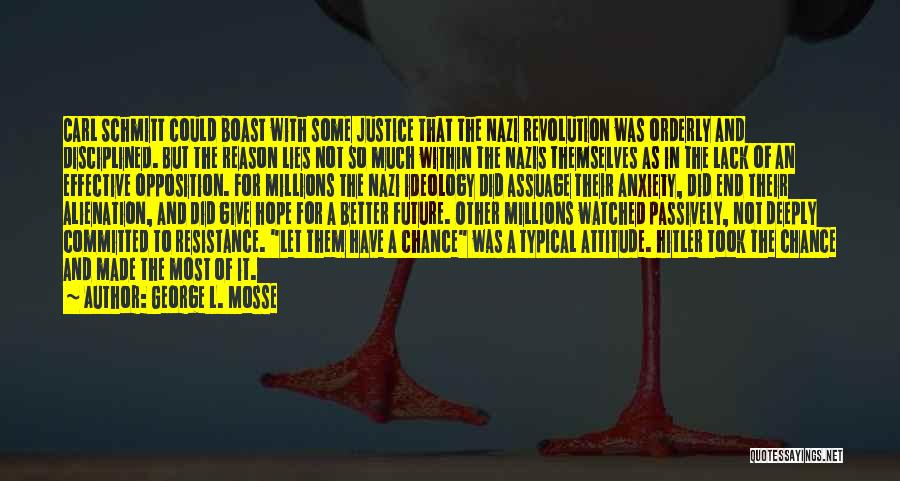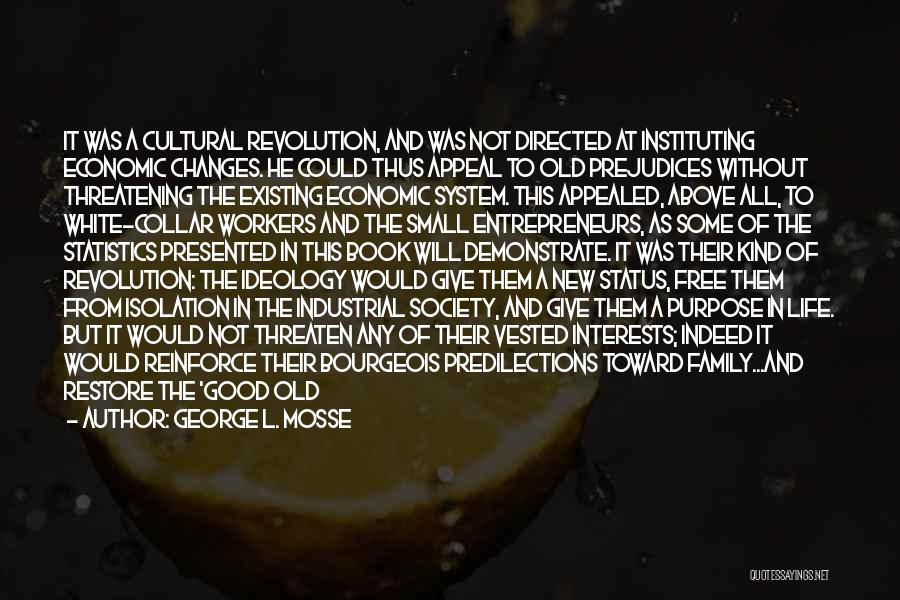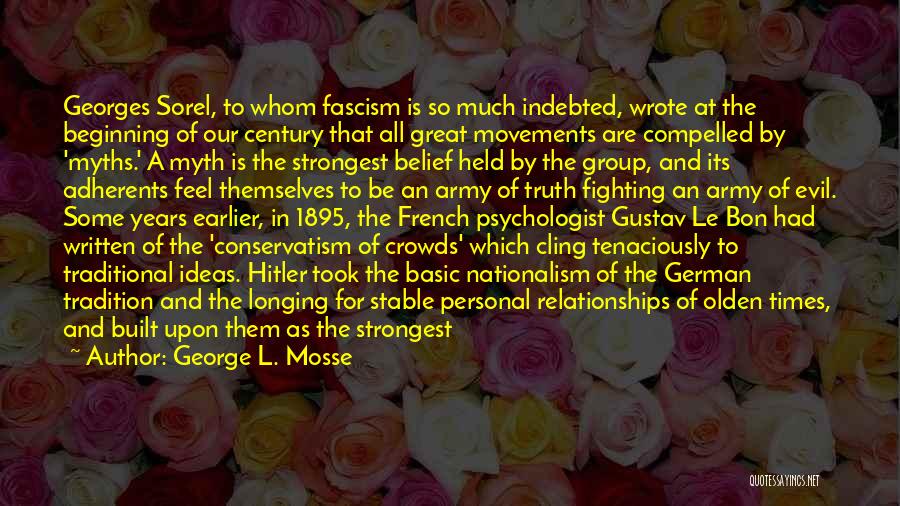George L. Mosse Quotes & Sayings
Enjoy the top 3 famous quotes, sayings and quotations by George L. Mosse.
Famous Quotes By George L. Mosse

Carl Schmitt could boast with some justice that the Nazi revolution was orderly and disciplined. But the reason lies not so much within the Nazis themselves as in the lack of an effective opposition. For millions the Nazi ideology did assuage their anxiety, did end their alienation, and did give hope for a better future. Other millions watched passively, not deeply committed to resistance. "Let them have a chance" was a typical attitude. Hitler took the chance and made the most of it. — George L. Mosse

It was a cultural revolution, and was not directed at instituting economic changes. He could thus appeal to old prejudices without threatening the existing economic system. This appealed, above all, to white-collar workers and the small entrepreneurs, as some of the statistics presented in this book will demonstrate. It was their kind of revolution: the ideology would give them a new status, free them from isolation in the industrial society, and give them a purpose in life. But it would not threaten any of their vested interests; indeed it would reinforce their bourgeois predilections toward family...and restore the 'good old values' which had been so sadly dismantled by modernity. — George L. Mosse

Georges Sorel, to whom fascism is so much indebted, wrote at the beginning of our century that all great movements are compelled by 'myths.' A myth is the strongest belief held by the group, and its adherents feel themselves to be an army of truth fighting an army of evil. Some years earlier, in 1895, the French psychologist Gustav Le Bon had written of the 'conservatism of crowds' which cling tenaciously to traditional ideas. Hitler took the basic nationalism of the German tradition and the longing for stable personal relationships of olden times, and built upon them as the strongest belief of the group. In the diffusion of the 'myth' Hitler fulfilled what Le Bon had forecast: that 'magical powers' were needed to control the crowd. The Fuhrer himself wrote of the 'magic influence' of mass suggestion and the liturgical aspects of his movement, and its success as a mass religion bore out the truth of this view. — George L. Mosse





